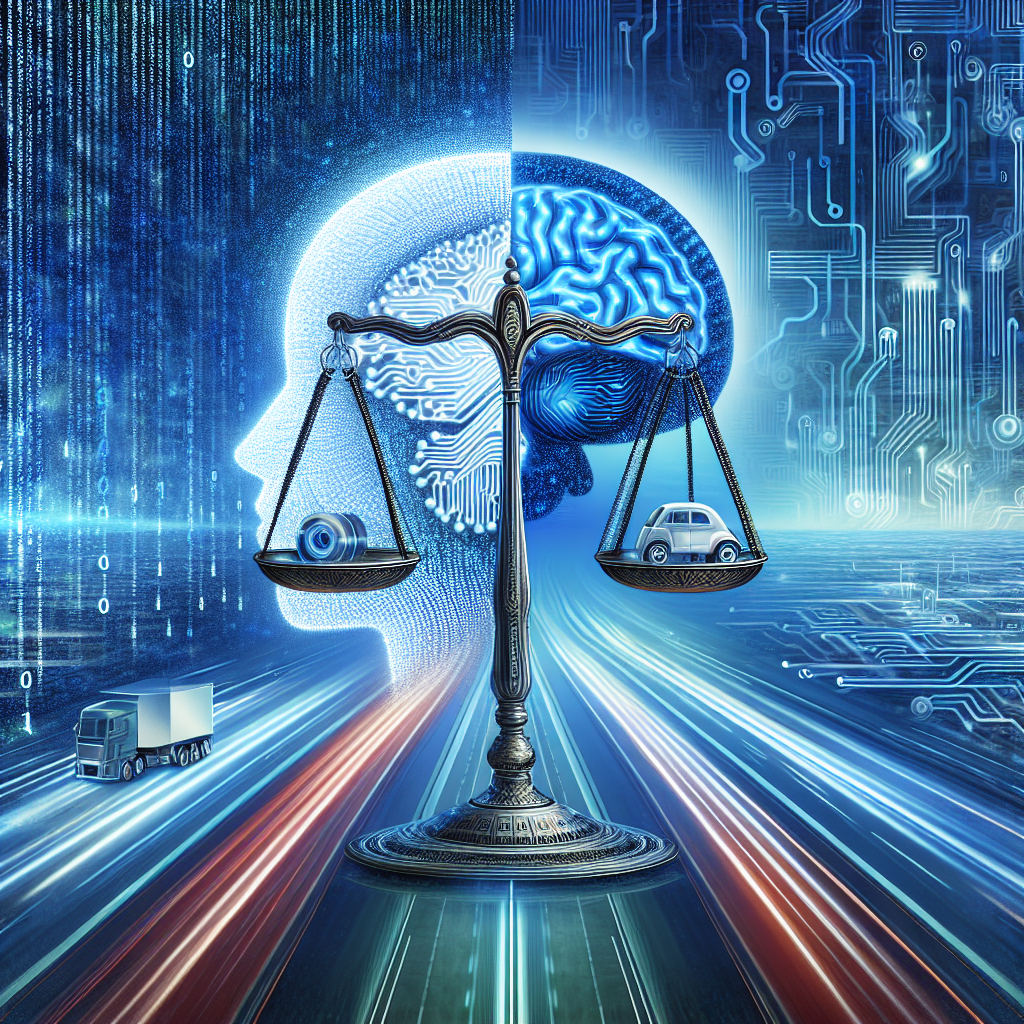Artificial Intelligence (AI) has become an integral part of our daily lives, from virtual assistants like Siri and Alexa to personalized recommendations on streaming platforms like Netflix. However, AI also has the potential to drive social change and promote social justice in various ways. In this article, we will explore the potential of AI development in social justice and how it can be used to address systemic inequalities and promote fairness and equality.
One of the key areas where AI can make a significant impact on social justice is in the criminal justice system. AI algorithms can be used to analyze data and identify patterns that can help to predict crime rates and prevent criminal activities. For example, predictive policing algorithms can be used to allocate resources more efficiently and target high-crime areas, leading to a reduction in crime rates and improved public safety. Additionally, AI can be used to identify bias in the criminal justice system, such as racial profiling and unfair sentencing practices, helping to ensure that justice is served equitably for all individuals.
AI can also be used to promote diversity and inclusion in various sectors, such as hiring and recruitment. AI-powered tools can help to remove bias from the hiring process by analyzing candidate data objectively and identifying the most qualified candidates based on their skills and qualifications. This can help to increase diversity in the workplace and promote equal opportunities for individuals from underrepresented groups. Additionally, AI can be used to monitor and address discrimination and harassment in the workplace, ensuring a safe and inclusive environment for all employees.
In the healthcare sector, AI can be used to improve access to healthcare services and provide personalized care for individuals. AI-powered tools can analyze patient data and medical records to identify patterns and trends that can help to diagnose diseases and develop personalized treatment plans. This can help to improve healthcare outcomes and reduce healthcare disparities among individuals from different socio-economic backgrounds. Additionally, AI can be used to analyze healthcare data and identify areas where resources are needed most, helping to allocate resources more efficiently and improve access to healthcare services in underserved communities.
AI can also be used to promote environmental justice and sustainability by analyzing data and identifying ways to reduce carbon emissions and promote renewable energy sources. AI-powered tools can help to optimize energy consumption and reduce waste, leading to a more sustainable and environmentally friendly future. Additionally, AI can be used to monitor and analyze environmental data, such as air and water quality, to identify areas where environmental regulations are not being enforced and take action to address environmental injustices.
While AI has the potential to drive social change and promote social justice, it is important to address ethical considerations and ensure that AI technologies are developed and deployed responsibly. It is crucial to ensure that AI algorithms are transparent and accountable, and that they do not perpetuate biases or discriminate against individuals from marginalized communities. Additionally, it is important to involve diverse stakeholders, including individuals from underrepresented groups, in the development and deployment of AI technologies to ensure that they are inclusive and considerate of diverse perspectives.
In conclusion, AI has the potential to drive social change and promote social justice in various ways, from addressing systemic inequalities in the criminal justice system to promoting diversity and inclusion in the workplace. By harnessing the power of AI, we can work towards a more equitable and just society where all individuals have equal opportunities and access to resources. It is essential to continue to explore the potential of AI development in social justice and work towards creating a more inclusive and fair world for all individuals.
FAQs:
Q: Can AI be biased?
A: Yes, AI algorithms can be biased if they are trained on biased data or developed without considering ethical considerations. It is important to address bias in AI algorithms and ensure that they are developed and deployed responsibly to prevent discrimination and promote fairness.
Q: How can AI promote diversity and inclusion?
A: AI can promote diversity and inclusion by removing bias from the hiring process, analyzing candidate data objectively, and identifying the most qualified candidates based on their skills and qualifications. Additionally, AI can be used to monitor and address discrimination and harassment in the workplace, ensuring a safe and inclusive environment for all employees.
Q: How can AI help to address environmental injustices?
A: AI can help to address environmental injustices by analyzing data and identifying ways to reduce carbon emissions and promote renewable energy sources. AI-powered tools can help to optimize energy consumption and reduce waste, leading to a more sustainable and environmentally friendly future.
Q: What are some ethical considerations to keep in mind when developing AI technologies for social justice?
A: Some ethical considerations to keep in mind when developing AI technologies for social justice include ensuring transparency and accountability in AI algorithms, addressing bias and discrimination, involving diverse stakeholders in the development process, and considering the impact of AI technologies on marginalized communities. It is essential to develop and deploy AI technologies responsibly to promote fairness and equality.

